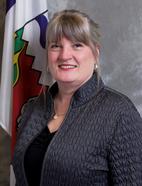Thank you, Mr. Speaker. Today I’d like to talk again about our Medical Travel Policy and I’d like to provide an example of where I think there may be a gap.
A patient has been assessed by a doctor and it’s deemed they have to travel from one community to come to Yellowknife to have a procedure done
– it
could be any kind of procedure, it could be surgery – and it’s deemed that they need a non-medical escort. So, a friend or a family member is called upon to accompany that patient. But when they get to Yellowknife, they find out that the procedure or the treatment that’s planned is not available at that time. So, the escort is then left in the situation where the patient must stay but the escort needs to get back to their home and to their family.
I want to get to the bottom of a policy which, to me, seems very unfair. Someone, out of the goodness of their heart, agrees to accompany a patient to Yellowknife, finds out that the stay is going to be too long and they can’t stay for the duration. But when they want to go home, they get told by medical travel, “I’m sorry. If you’re not travelling home with the patient, you’re not eligible to have your cost covered.” I don’t think that’s right. I think it would discourage people from helping a friend who needed a medical escort.
I will, later today, be asking the Minister of Health and Social Services if he could clarify for us what the policy is in a situation like this. I mean, it’s very possible that the treatment or procedure that that patient was schedule for could get changed for some reason. It could be any number of reasons. If the patient is not sent back to their home community, what happens to the person who escorted them here when they need to return?
I think it may be potentially a gap in the system that needs to be addressed, and I’d like to question the Minister about it in question period. Thank you, Mr. Speaker.
